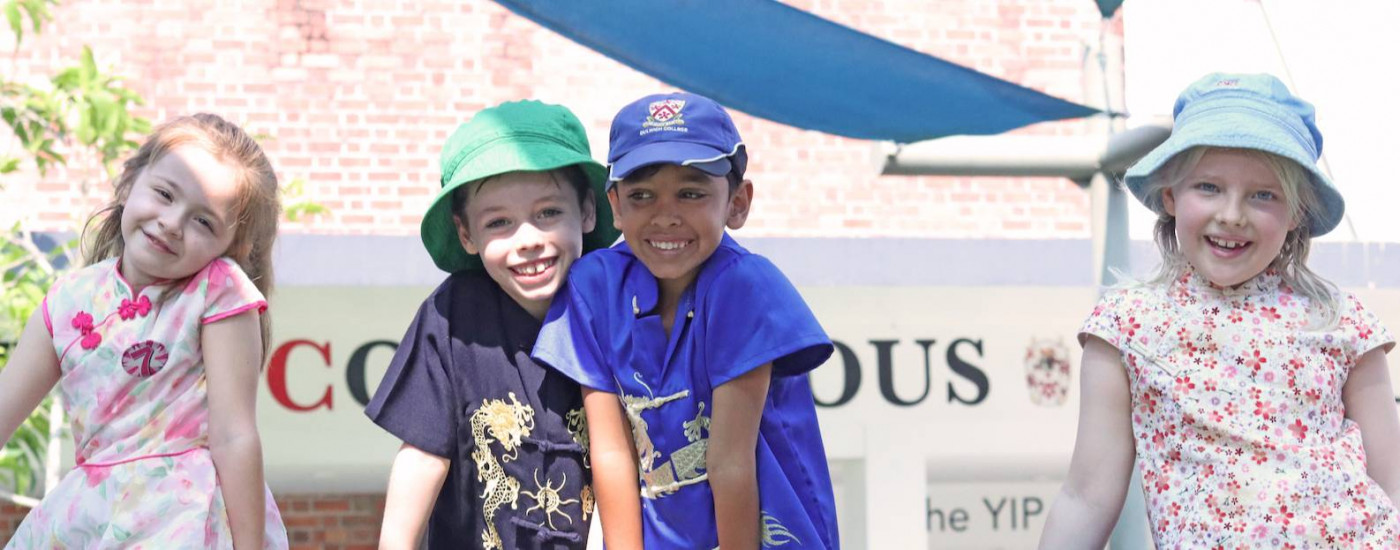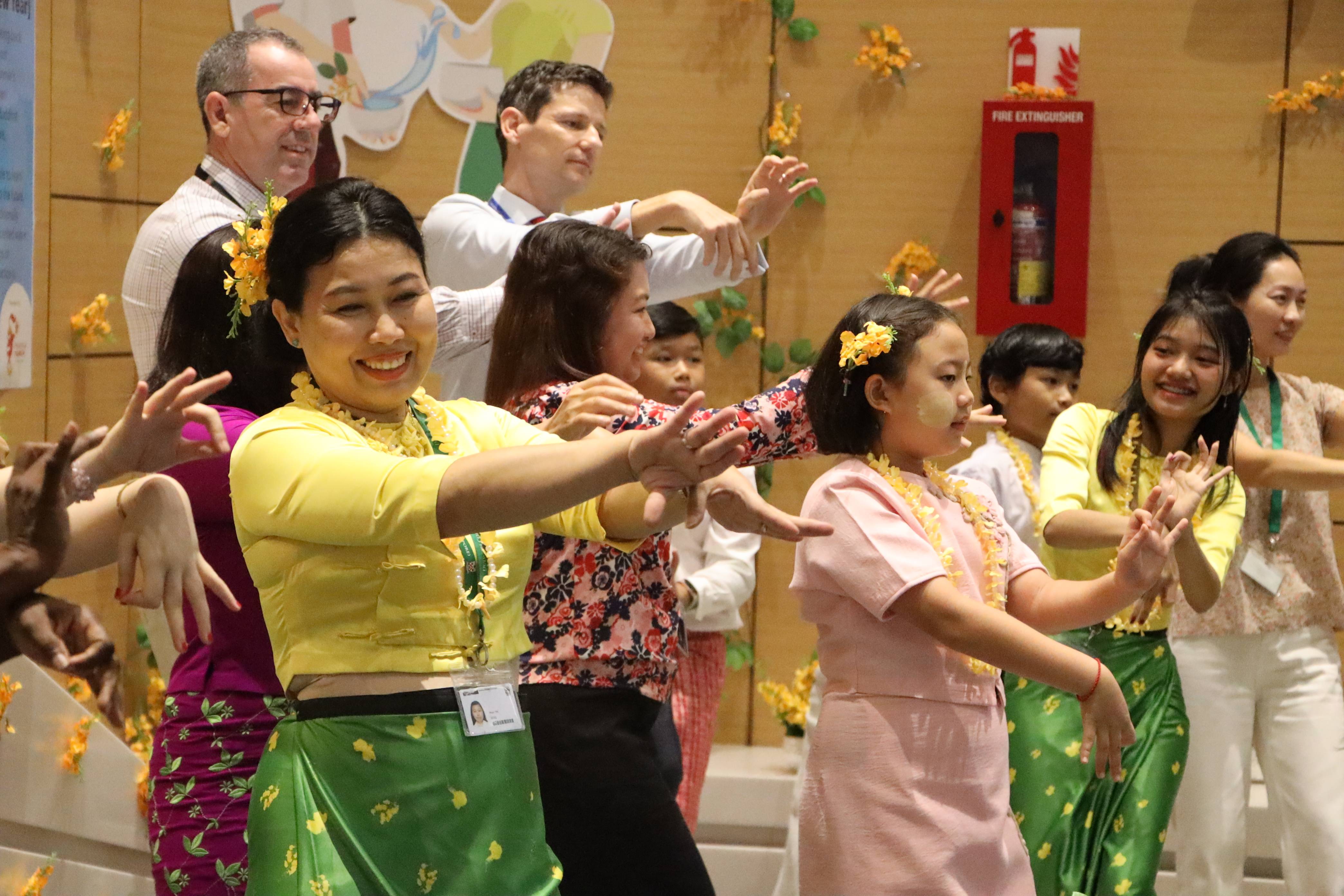The Importance of Intercultural Understanding at Dulwich College (Singapore)


We understand, explore and respect both our own and others’ backgrounds and cultures.
In a world becoming ever more connected, the need for mutual respect and understanding between cultures has never been more critical. For globally minded institutions like Dulwich College (Singapore), where our community represents a rich mix of diverse backgrounds, cultures, and perspectives, nurturing intercultural understanding becomes both a responsibility and a unique opportunity.
In today’s article, I would like to explain why this skill is an integral part of our programme.
At the College, there is no doubt we are shaping future leaders who will interact in a global environment. With intercultural understanding, students are prepared to navigate diverse workspaces, understand global issues from various perspectives, and make decisions that consider and respect global diversities, hopefully making them more successful, more influential, and ultimately more comfortable in a global context. However, intercultural understanding goes beyond mere acceptance of other cultures; it's about appreciating the richness that different cultures bring. By exploring various cultures and backgrounds, students can identify and evaluate stereotypes and biases, fostering an environment of genuine respect. The understanding and exploration of different cultures broaden horizons, enrich one's personal experiences, and aid in cognitive growth. It helps students develop empathy, adaptability, and a more comprehensive view of the world, which are invaluable in personal and professional spheres. In these professional spheres, collaboration across cultures has become the norm. With a solid foundation in intercultural understanding, students will be better equipped to work in multicultural teams, understand diverse viewpoints, and drive collective success.
While it's essential to understand and respect others, it's equally vital to recognise and value one's own cultural heritage. By promoting this dual understanding, students can confidently represent their culture while also appreciating the richness of diversity around them. Intercultural Understanding isn't just a skill; it's a way of life or a habit of mind. As educators, we have the privilege and duty to instil this understanding in our students, ensuring they not only thrive in our global society but also play a pivotal role in promoting respect, collaboration, and unity in diversity.
Within the College, there are many opportunities which allow students to develop intercultural understanding. At the beginning of our learners' journey, we embrace cultural diversity and respect for all. Every festival from our diverse community gets its day under the sun, instilling the value of every culture represented in DUCKS.
We also recognise the strong bond between culture and language and encourage children to learn poems or chants in their native tongues, showcased in our DUCKS annual Poetry by Heart competition. Our students proudly write their names in their native languages on International Literacy Day, further delving into the significance of their names. United Nations Day is not restricted to a day; we have a week-long curriculum designed around understanding and appreciating global diversities. One of the learning bugs in DUCKS, Ding Bang the Dragonfly, is a unique symbol for Intercultural Understanding. Ding Bang teaches our children to respect and appreciate the cultural kaleidoscope they're a part of.
As students grow and move into Junior School, our curriculum ensures a deep dive into various cultures, from studying different communities in Singapore in Year 3 to examining the influence of past civilisations in Year 4, geographical and economic aspects of various countries in Year 5, to understanding beliefs and values through studies like Hinduism in Year 6.
Teachers begin the year with a focus on ‘knowing your children’—a theme that actively celebrates our students' diverse backgrounds, experiences, and languages. Students are offered leadership opportunities like the ‘Equality Ambassadors’ who drive celebrations of significant days like the 'International Mother Tongue Day'. There are also specific opportunities in the curriculum which are naturally global in perspective, and music is one of these. Our music lessons transcend borders, with genres like Jazz, Latin American, and African drumming. Each year, a group in the Junior School celebrates a major Singaporean festival, culminating in a grand performance in The Alleyn Theatre. Of course, one major source of intercultural understanding is provided by the Mandarin team, where lessons and the programme seamlessly intertwine cultural learning with language instructions.
Students continue their journey into the Senior School with the Global Skills programme and more opportunities for the curriculum to provide a window into this important skill. This culminates in an Intercultural Awareness Week, an event placed on the calendar last year, following a Student Leaders’ presentation to the College Leadership Team. The presentation itself certainly showed how passionately our Student Leaders feel about building connections through culture. The week aims to focus on intercultural aspects of our community, seeking to understand, explore and respect connections between cultures with a view to fostering a sense of belonging for all. Students organise the events for the week, and it is explored in lessons simultaneously with the languages department leading the way!
The International Baccalaureate programmes themselves, which represent the culmination of this journey, contain both opportunities to deeply examine elements of intercultural understanding, assessment criteria, and academic success have elements of this skill, particularly elements of the core like the Extended Essay and Theory of Knowledge.
The development of intercultural understanding is central to the International Baccalaureate Career Programme, which contains the Personal and Professional Skills Course as part of its core. Within this central part of the programme, intercultural understanding is examined in various contexts, including its significance in workplaces, as inspired by Erin Meyer's "The Culture Map". The specialist parts of the programme also provide opportunities; for example, our sports pathway students ponder upon the impact of cultural understanding on areas like team dynamics in sports, or the performing arts students discuss an audience's response to a piece of art through this lens.

We are also committed to bringing intercultural experiences to our wider community. Our Friends of Dulwich Nationality Groups also actively contribute to memorable moments and learning for our parents and staff.
Through initiatives to celebrate local and international festivals and cultural observance days on campus, they have helped foster understanding and appreciation of diverse cultures, enriching our collective cultural tapestry. For instance, on World Batik Day, we will have batik artists holding workshops that let our students and parents have a hand in creating their own batik, during Thailand’s Songkran (Thai New Year), we had a live Thai dance and Muay Thai boxing, and during Lunar New Year, our students and parents were treated to a traditional Chinese dance showcase.
Our commitment to developing this understanding includes celebrations, but it goes well beyond this. It's about embedding the richness of every culture in the learning fabric of our school. Together, let's foster a community that not only understands but truly respects and values the beautiful diversity that is our world.






